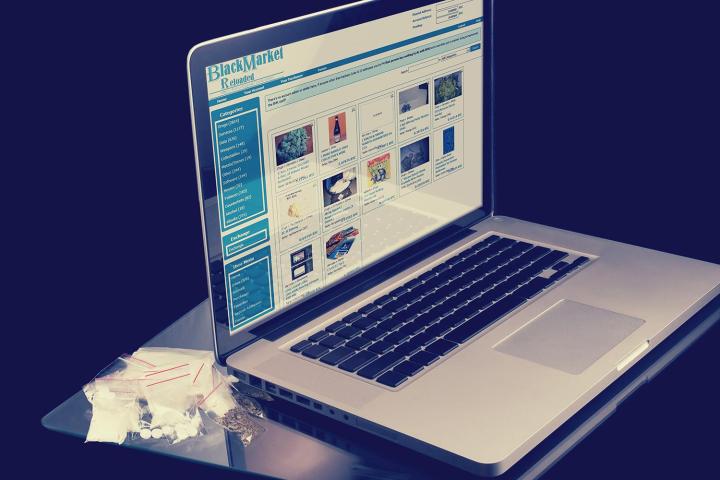
U.S. law enforcement agents served tech-savvy drug users a major dose of buzzkill this week by shutting down Silk Road, a ‘dark Web’ site considered the world’s largest online marketplace for illegal drugs. The site’s alleged owner, previously known only as “Dread Pirate Roberts” or “DPR,” has been arrested on multiple felony counts and unmasked as 29-year-old Ross William Ulbricht, a San Francisco engineer.
The first criminal complaint against Ulbricht (pdf), filed in New York, lists his charges as one count each of narcotics trafficking conspiracy, computer hacking conspiracy, and money laundering conspiracy.
Ulbricht also allegedly tried to hire hitmen to kill two people who threatened his anonymity – one a user who tried to blackmail him, the other a former employee who’d been arrested. A separate indictment filed in Maryland charges him with conspiracy to commit murder of a witness, use of interstate commerce in murder-for-hire, conspiracy to distribute a controlled substance, and aiding and abetting.
Experts believe that, if convicted, Ulbricht faces life in prison on the drug charges alone.

But Ulbricht is far from the only person affected by Silk Road’s demise. News of the FBI’s Silk Road seizure has sent many of its users into a cold-sweat hysteria, with buyers and vendors anxiously wondering whether police will be knocking on their doors next. (In fact, reports of Silk Road vendors “disappearing” and otherwise being arrested have already begun to flow in.) Some users have offered sage security and safety advice to the community, while others spread wishful conspiracy theories about the FBI snagging the wrong Dread Pirate Roberts.
(Ed. note: I’ve removed the links to Reddit’s Silk Road community that were previously embedded in the paragraph above to avoid potential privacy concerns.)
Many others – despite the clear and present danger of going to jail staring them right in the face – have simply moved on to other sites to buy drugs, fake IDs, firearms, and a slew of other illicit items once available on Silk Road. And it seems that two such online outlets are competing to fill the void.
Like the Silk Road, both sites are only accessible through the Tor network, not the regular Internet. Add in the illicit nature of these sites, and you can surely understand why I’m not linking to either. If you want to check them out yourself, it’s not particularly difficult to do so – and signing up for both is as easy as creating any new online account.
Sheep Marketplace

The first is known as Sheep Marketplace, which boasts 14 categories of goods people can buy. The most poplar category is, of course, drugs, which currently lists more than 850 products available for purchase – roughly triple the amount available early on Wednesday, before the Silk Road shutdown – including various strains of marijuana, cocaine, ecstasy, LSD, and other psychedelics.
Other active categories include services (money, logistics, sex), data (piracy, software, digital goods), and jewelry (mostly of the diamonds and gold variety).
Some users are wary of Sheep Marketplace for two reasons. First is that fact that Sheep Marketplace has not been around for very long, meaning it could be a honeypot set up by federal agents. Second, the site has apparently not yet built in an escrow feature, like the one provided by Silk Road, which holds buyers’ Bitcoins, a popular anonymous digital currency, used for purchases until the vendor delivers the ordered goods. Instead, Bitcoins are transferred directly, opening the door for scams. That said, Sheep Marketplace developers are allegedly working on building in an escrow feature – but that still doesn’t resolve suspicion about the site being controlled by law enforcement.
BlackMarket Reloaded

Better known as BMR, BlackMarket Reloaded offers the same types of illegal items as Sheep Marketplace, with all the various narcotics. Only BMR has roughly three times as many products to choose from in the drug category – around 3,000 products in total – and seems to have more activity overall. I didn’t access BMR early enough to notice any significant jump in activity or an increase in product availability, but some forum users have indicated that dealers who sold on Silk Road have migrated to BMR.
BMR is said to have that Bitcoin escrow feature that Sheep Marketplace currently lacks, according to users. (I certainly didn’t try it out.) That said, quite a few forum posters have indicated a number of scams taking place on BMR as well – plus there’s that whole law enforcement honeypot thing. And some users say they simply prefer Sheep Marketplace over BMR because the former has a cleaner, less outdated-looking design. So there’s that to consider, I guess.
Most of us, I assume, never visited the Silk Road before its inevitable end, and have no intention to jump on the online drug-buying bandwagon now. (At least, I hope not.) Still, it is important to know that, just because one (major) black market gets taken out, it doesn’t mean the elements have gone anywhere far.
(Lead image courtesy eAlisa/Shutterstock)


